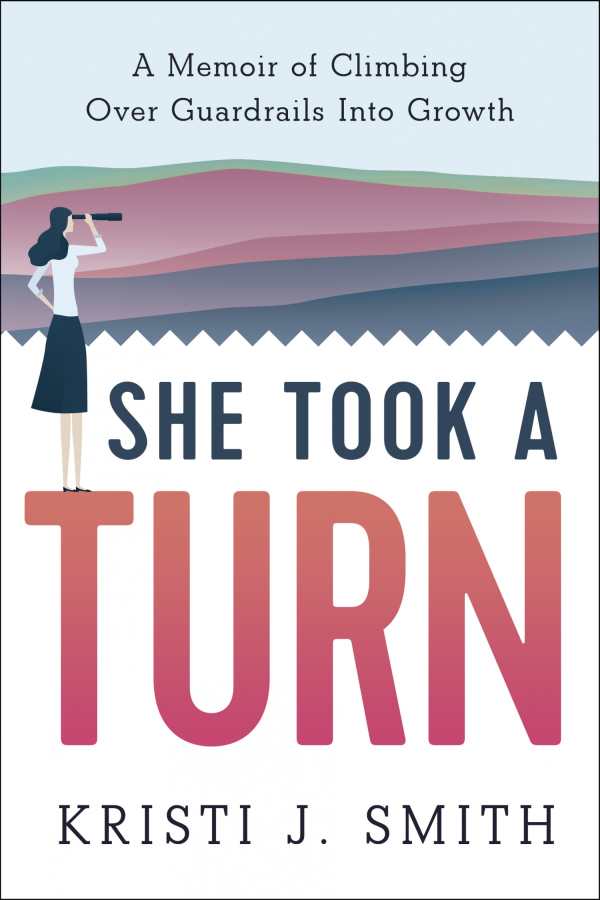She Took a Turn
A Memoir of Climbing over Guardrails into Growth
About shedding blinders to see the world in more realistic terms, She Took a Turn is an enlightening memoir.
Kristi J. Smith’s charming memoir She Took a Turn is about her work toward self-discovery.
Smith’s life was mapped out at birth: she would be a perfect young lady from Alabama and would also break glass ceilings by being a doctor. She’d be the perfect evangelical Christian who would settle down with a Christian man and move back to the South to raise their children. But Smith wasn’t sure she wanted to cooperate: her interests didn’t lie in medicine, and although she identified as Christian, she wasn’t set on a specific denomination. She quit medical school and fell in love with teaching, following her heart wherever it led her.
The book is written in a meandering style, going back and forth in time and foreshadowing important events in Smith’s life before returning to them later. Its tone is colloquial, and its prose is thick with metaphors: Smith compares herself to wet cement in her mother’s mind and dry cement in her own to explain their relationship and its early challenges. Further, much of the book’s work is self-reflective and internal, with Smith questioning who she is throughout. It turns over her life story to explore how each individual event contributed to shaping who she became, from the triumph of leaving medical school to the affirmation of a young student saying she was the best teacher ever. Challenges like a breast cancer diagnosis are included as well.
Relationships are another major focus of the memoir—between Smith and her parents at first, then with her sister, and finally with her husband and children. The book explores how these different relationships, and even the most ephemeral relationships (as with that formed via a single conversation with a man who sold flowers outside of her medical school), affected Smith’s life. The more significant relationships, like the one she had with her mother, were the blueprint for her personality, even though it took the women decades to find common ground.
In addition to its personal stories, the book’s topics are diverse. Smith’s interactions with the world around her are a frequent point of focus, as with notes on how she shed her blinders and began to see the world around her in more realistic terms. There are anecdotes about shedding a belief in a meritocracy and about growing from being “color-blind” to becoming aware of systemic racism and her part in it. Such growth is illustrated through stories, as of Smith asking students of color what the United States would be like without the civil rights movement—and then realizing that the students she queried still dealt with living racism. Anecdotes from Smith’s time as a history teacher are also used to comment on systemic issues: she saw an excellent student expelled from school, for example, because he lived outside the school district. Such varied but edifying moments come together in the book’s lesson-filled conclusion, which reflects upon Smith’s life events once more to answer the questions of personal identity that are present throughout the pages.
She Took a Turn is an enlightening memoir about a woman growing into herself and outgrowing other people’s expectations.
Reviewed by
Carolina Ciucci
Disclosure: This article is not an endorsement, but a review. The publisher of this book provided free copies of the book and paid a small fee to have their book reviewed by a professional reviewer. Foreword Reviews and Clarion Reviews make no guarantee that the publisher will receive a positive review. Foreword Magazine, Inc. is disclosing this in accordance with the Federal Trade Commission’s 16 CFR, Part 255.

